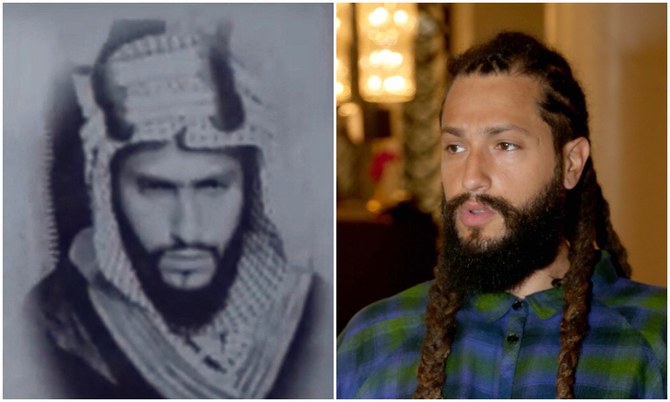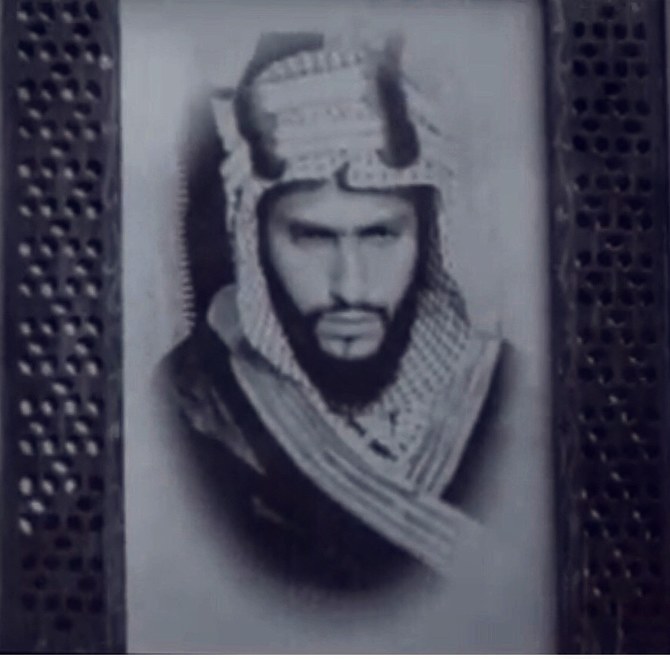RIYADH: With his long dreadlocked hair, handsome Arabian looks and a quiet disposition, Rakan Abdulwahid is the 32-year-old Saudi actor who plays King Abdul Aziz in “Born a King.”
His family history runs deep with the Al-Saud family. “My great grandfather fought alongside King Abdul Aziz,” Rakan told Arab News.
His family’s lineage goes back to the days of King Abdulaziz as they are considered the official “Al-Arda” dance performers. They have been performing the pre-war and celebratory dance for over a century, before the founding of Kingdom of Saudi Arabia.
His uncle, Salah Abdulwahid, is featured in the movie, as the main Al-Arda performer.
The Saudi actor felt a connection to the founder of the Kingdom, not only physically resembling the king, but also embodying his charisma.
Before the shooting of the movie, he began reading up on anything he could get his hands on to learn more about the founder’s personality, to try and pefect his character and do him justice on the big screen.
Born in the US and raised in the Kingdom, and an avid athlete in his youth, he was a soccer player until he broke his hip in a tournament.
The multitalented actor not only shines through on the big screen, but is a rapper, singer, model and designer. As a lover of the arts in all forms, he believes that culture can build bridges across the world.
He has vowed to represent his country in a positive manner while breaking stereotypes about Saudi Arabia. He also speaks French, English and Spanish fluently.
The actor obtained four degrees in just 7 years, having majored in industrial engineering with a minor in business and math from Northeastern University.
He later continued his education and received his master’s in engineering project management and an MBA certificate in global supply chain management. However, that didn’t stop him from taking law classes at Harvard for a semester.
As a child he would write 300-page stories, cooked passionately and danced with abandonment.
He returned to his homeland to play one of the most influential people in the Kingdom’s history: Its founder King Abdul Aziz.
































